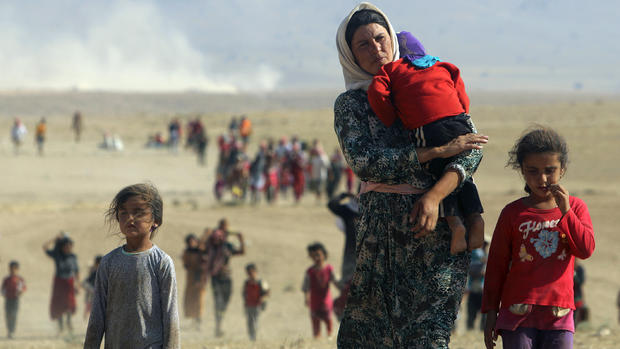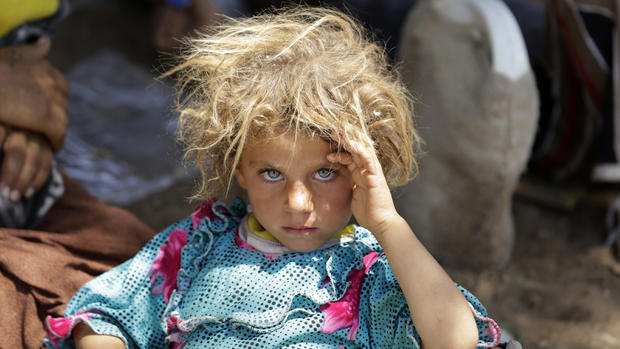Former Yazidi sex slaves to ISIS feel suicidal, neglected by world, Amnesty International says
The Islamic State of Iraq and Syria (ISIS) holds at least an estimated 3,000 women and girls as sex slaves, nearly all of whom come from the minority Yazidi ethnic group, whose home territory of Sinjar in Iraq was overrun by the terrorists in 2014.
A new report from Amnesty International claims those Yazidi women who managed to escape ISIS’ grip are being failed by the international community.
The report said many of the escapees have been “driven to the brink of suicide or had sisters or daughters who killed themselves because of the appalling abuse they endured in captivity. The suffering of survivors is compounded by their current destitute living conditions, their grief for relatives killed by (ISIS) and their fears for those who remain in captivity.”
The thousands of Yazidi women and children were taken prisoner in August 2014, when ISIS fighters overran their villages in northern Iraq with the aim to eliminate the Kurdish-speaking minority because of its ancient faith. Since then, Arab and Kurdish smugglers managed to free an average of 134 people a month. But by May, an ISIS crackdown reduced those numbers to just 39, according to figures provided by the Kurdistan regional government.
Amnesty says there is no system at all to evaluate and support the survivors of ISIS’ torture and captivity, leaving the lucky few left alive to largely fend for themselves, which can be a recipe for disaster. Those who get away from ISIS are battling “severe depression as well as anger, and many have suicidal thoughts,” the group said.
ISIS has been particularly vicious towards the Yazidi. In August, the U.N. said the terrorists were continuing their campaign of genocide against the minority group.
One of the group’s former prisoners, a 20-year-old woman from Sinjar who was called “Jamila,” described to Amnesty the horror of being gang raped and repeatedly “sold” from fighter to fighter. She was eventually released after her family paid a large ransom to her captors.
“Jamila described how fighters forced her and the other girls and women in Mosul to remove their clothes and ‘pose’ for photographs before ‘selling’ them on,” Amnesty said in its report. “She tried to escape twice but was caught both times. As punishment, she was tied to a bed by her hands and legs and gang-raped as well as being beaten with cables and deprived of food.
“Like a number of other women, her horrific experiences in captivity drove her to contemplate suicide,” the report continued. “But she is determined to speak out: ‘I don’t want to hide what happened, so people can help those still with Daesh [Arabic acronym for ISIS] as well as help survivors rebuild their lives.’“
In its report, Amnesty says there have been no prosecutions in Iraq for crimes against the Yazidi.

